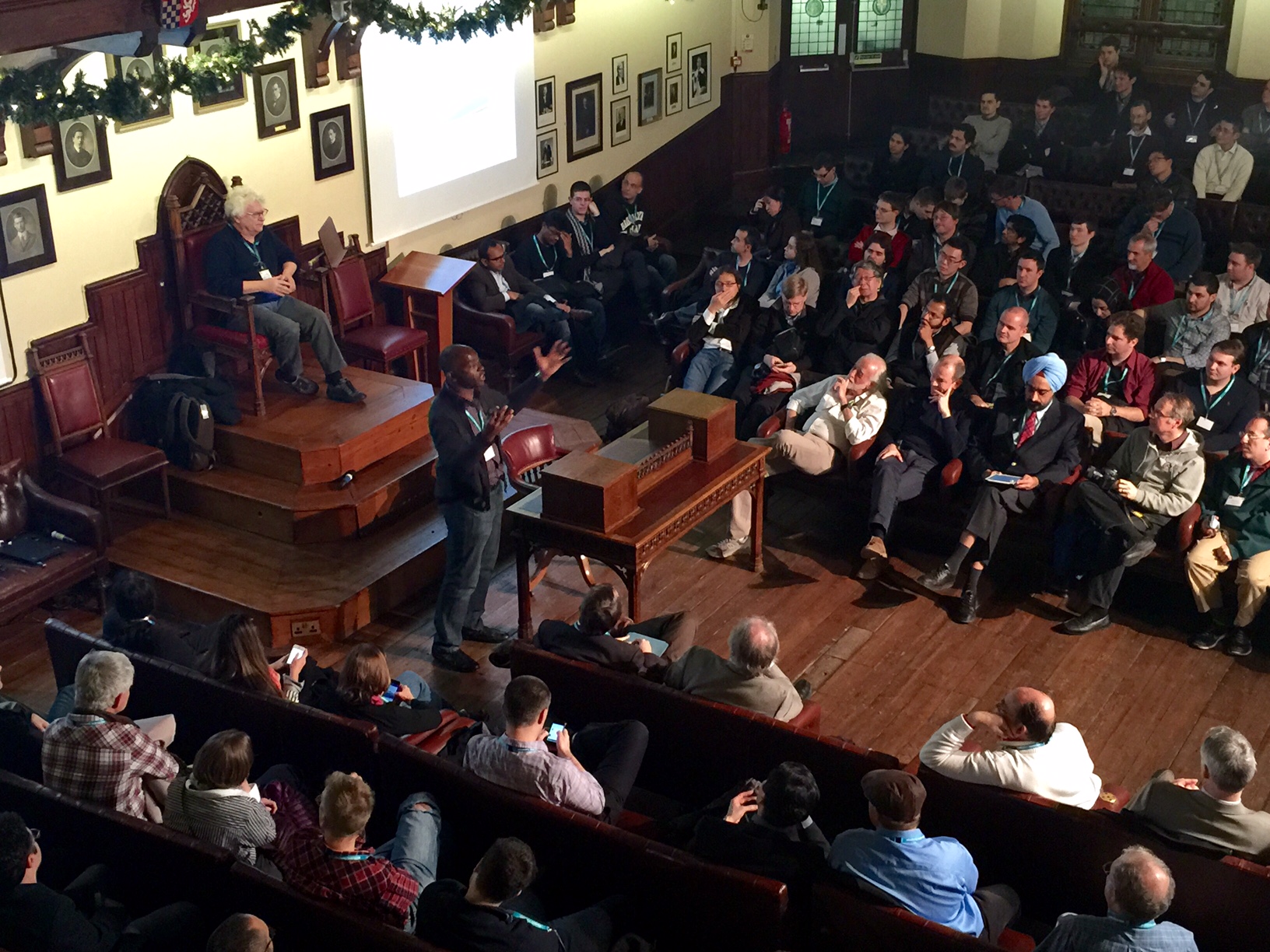End of the Road for the Von Neumann Architecture? Not Yet.
So went the vote held in the debating chamber of the University of Cambridge Union.

 Enlarge
Enlarge
On the evening of December 16, 2014, computer architecture researchers and scientists assembled in the debating chamber of the University of Cambridge Union for a hot debate on whether or not the end of the road has been reached for the Von Neumann Architecture. The discussion was held as a part of MICRO-47, the premier forum for presenting, discussing, and debating innovative microarchitecture ideas and techniques for advanced computing and communication systems.
Chairing the debate was Trevor Mudge, Bredt Professor of Engineering at the University of Michigan. The Motion was: This House believes that it is the End of the Road for the Von Neumann Architecture.
Those who spoke in favor of the motion were Simon Moore – Professor of Computer Engineering, The University of Cambridge and Fellow of Trinity Hall; Steve Furber – Professor of Computer Engineering, CBE and Fellow of the Royal Society; and Kunle Olukotun – Cadence Design Systems Professor of Electrical Engineering & Computer Science, Stanford University.
Those who spoke against the motion were Yale Patt – Professor of Electrical and Computer Engineering, Ernest Cockrell, Jr. Centennial Chair in Engineering, and University Distinguished Teaching Professor, The University of Texas at Austin; Simon Knowles – Chief Technology Officer, XMOS, Ltd.; and Guri Sohi – John P. Morgridge Professor and E. David Cronon Professor of Computer Sciences, The University of Wisconsin-Madison.
The vote was against the motion.
The Von Neumann Architecture is a computer architecture based on that described in 1945 by the mathematician and physicist John von Neumann and others that describes a design architecture for an electronic digital computer with parts consisting of a processing unit containing an arithmetic logic unit and processor registers, a control unit containing an instruction register and program counter, a memory to store both data and instructions, external mass storage, and input and output mechanisms.
Founded in 1815, the Cambridge Union is the oldest continuously running debating society in the world, and the largest and most famous society at the University of Cambridge. In 2015, the Union will celebrate 200 years of free speech and the art of debating. Alongside the Union’s regular programme for the year ahead, a series of high-profile events have been organized to celebrate the Union’s bicentenary.
 MENU
MENU